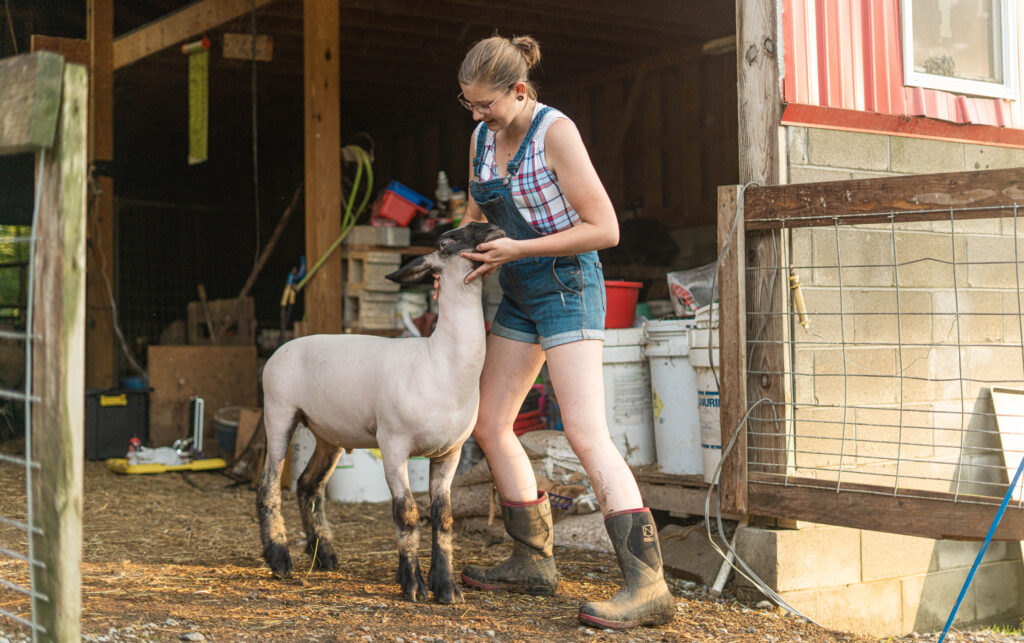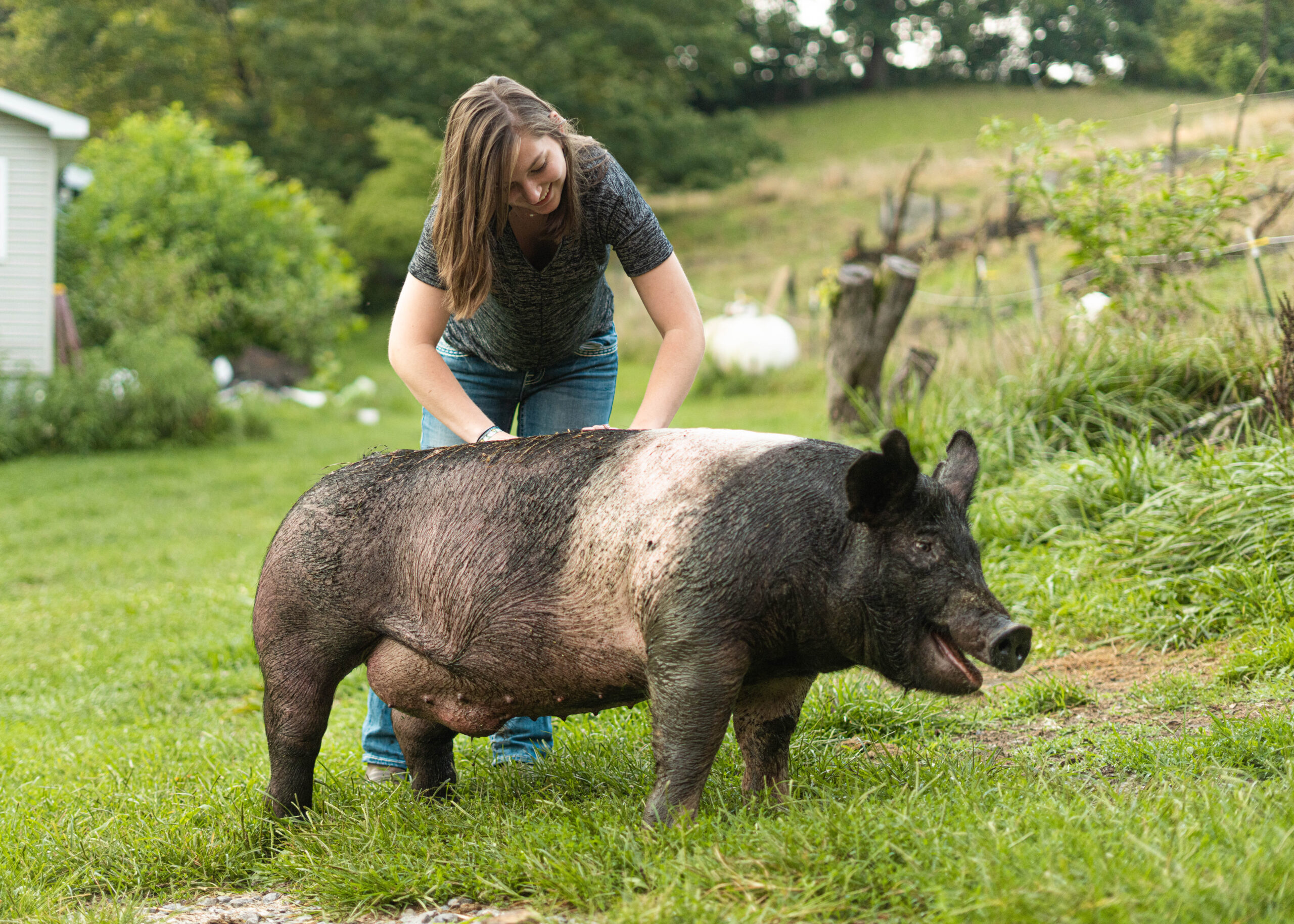By Dana Hantel
Newsroom@DominionPost.com
Hannah and Marina Maxwell, sisters and WVU students, have chosen career paths that involve agriculture.
Hannah is studying animal and nutritional sciences, and while most of her friends have graduated and are starting new jobs, she’s a student for another year because she’s adding a teaching certificate. But her 4-H participation is ending a year earlier than expected because the system for determining one’s “4-H age” has changed. She’s sad to see that chapter end but grateful for the experiences, which she knows will keep paying dividends.
“The biggest thing 4-H taught me was time-management and problem-solving,” she said. And showing livestock helped her come out of her shell. “It was hard for me to get up in front of the class to do a math problem, even though I knew the math. With 4-H, I don’t know how it happened, but I’ve stood up in front of 50-plus people and talked. It’s not a big deal.”
Her sister Marina is a sophomore studying agricultural and extension education. She wants to be an extension agent so she can be involved in 4-H forever. She feels lucky to have found her passion early in life and to be able to turn it into a rewarding career.
As they reminisced about their 4-H experiences and looked forward to the upcoming show, Marina said the week of the fair “is the best bonding and teamwork experience you could ever ask for,” and Hannah added, “people take care of each other’s kids, drive them, feed them, etc.”
At no more than 10 and 12 years old, they’d be riding along in the backseat having a conversation about the profitability of raising one animal vs. another: “What’s our profit, what’s our gain?” Marina laughed and said, “Our poor parents … they got a farm Ulife whether they wanted it or not.”
This future extension agent said there are plenty of opportunities in agriculture but that with so many paths to consider, young people may not choose agricultUure “if they don’t understand the benefits.” Since not everyone has access to land, it would be helpful to have more projects that engage and benefit the community, like “open gardens for the community to use. This would allow more people to get involved.”
When asked what it’s like to auction off an animal they’ve put such care into raising, Marina said, “Our entire job is to make sure these animals have a healthy and happy life, to give them the best life they could possibly have. You know they were happy, well-fed and well taken care of. It is hard, but it makes you respect their life even more.”
Hannah said, “We need more education about food production practices.” She’s heard children, upon being asked where meat comes from, respond that it comes from the grocery store, and she stresses that it’s important for people to understand that the food they eat “has a story that starts before the grocery store.”

When asked why people should spend money at the auction, they took turns rattling off reasons: “You are paying forU quality. You are paying for the animal’s care. You are paying for the next year’s project, the next year’s feed. You are helping kids pay for college. Your money is going toward something.”
Jennifer Turner, a member of the Monongalia County Fair Youth Livestock Show and Auction Committee, shared a similar message: “Your support for these youth members is needed. While there, meet the animals they have dedicated their summer to produce.”
She said if you purchase an animal, “The livestock committee willU transport to one of our prearranged four processors and the buyer will pick up the finished product. You can fill your freezer, have a tax deduUction and make a difference in these members’ lives.”
TWEET @DominionPostWV




